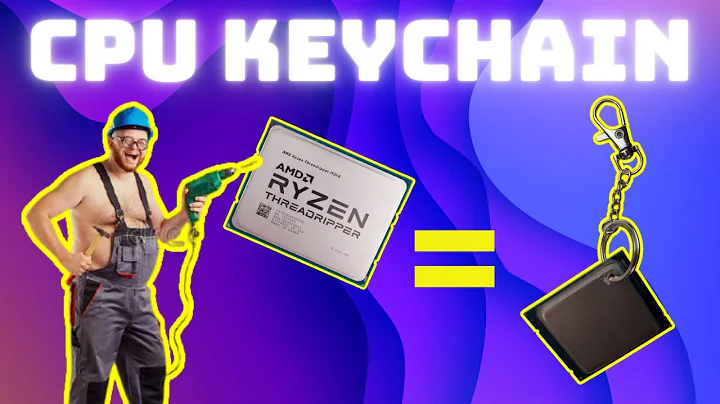Unveiling Intel SSD 750: Blazing NVMe Performance
Table of Contents
- Introduction to the Intel SSD 750 Series
- Understanding PCIe SSDs
- NVMe Protocol: Enhancing Efficiency
- Comparing SSD Performance Metrics
- Sequential Reads and Writes
- Random Reads and Writes
- Exploring IOPS and Latency
- Differentiating Consumer and Enterprise SSDs
- The Evolution of SSD Pricing
- Intel SSD 750 Series: Pricing and Capacities
- Analyzing User Experience and Workload
- Pros and Cons of the Intel SSD 750 Series
Introduction to the Intel SSD 750 Series
In the ever-evolving landscape of solid-state drives (SSDs), Intel stands as a pioneer, continually pushing the boundaries of storage technology. The Intel SSD 750 Series emerges as a testament to their commitment to innovation, promising blazing-fast performance and unrivaled reliability.
Understanding PCIe SSDs
Traditional SATA-based SSDs have long been the staple of high-performance storage solutions. However, the Intel SSD 750 Series takes a giant leap forward by utilizing the PCIe interface, unleashing unprecedented data transfer speeds.
NVMe Protocol: Enhancing Efficiency
At the heart of the Intel SSD 750 Series lies the NVMe (Non-Volatile Memory Express) protocol, revolutionizing storage efficiency by minimizing CPU overhead and maximizing throughput. Unlike its AHCI predecessor, NVMe is tailor-made for SSDs, ensuring optimal performance and responsiveness.
Comparing SSD Performance Metrics
When evaluating SSD performance, several key metrics come into play. From sequential reads and writes to random IOPS (Input/Output Operations Per Second), the Intel SSD 750 Series excels across the board, delivering lightning-fast data access for both large files and small, random operations.
Exploring IOPS and Latency
In the realm of SSDs, IOPS and latency are critical indicators of performance. With the Intel SSD 750 Series boasting impressive IOPS figures and ultra-low latency, users can expect swift responsiveness and seamless multitasking, even under heavy workloads.
Differentiating Consumer and Enterprise SSDs
While consumer-grade SSDs prioritize affordability and everyday performance, enterprise-grade SSDs prioritize endurance and reliability. The Intel SSD 750 Series bridges the gap, offering enterprise-level performance to consumers without compromising on quality or durability.
The Evolution of SSD Pricing
Over the years, SSD pricing has witnessed a significant decline, making high-speed storage more accessible than ever before. With the introduction of the Intel SSD 750 Series, consumers can now enjoy enterprise-level performance at competitive price points.
Intel SSD 750 Series: Pricing and Capacities
Available in capacities ranging from 400GB to 1.2TB, the Intel SSD 750 Series caters to a wide range of storage needs. While pricing may vary, the performance-to-price ratio remains exceptional, making it a compelling choice for enthusiasts and professionals alike.
Analyzing User Experience and Workload
In real-world scenarios, the Intel SSD 750 Series shines, offering unparalleled speed and responsiveness across various applications and workloads. Whether gaming, content creation, or heavy multitasking, users can count on the Intel SSD 750 Series to deliver exceptional performance.
Pros and Cons of the Intel SSD 750 Series
Pros:
- Blazing-fast PCIe interface
- Enhanced efficiency with NVMe protocol
- Exceptional sequential and random performance
- Bridging the gap between consumer and enterprise SSDs
- Competitive pricing for enterprise-level performance
Cons:
- Limited capacity options (lack of an 800GB variant)
- Higher pricing compared to SATA-based SSDs
- Requires compatible motherboard and PCIe slot for optimal performance
Highlights
- The Intel SSD 750 Series redefines storage performance with its PCIe interface and NVMe protocol, offering unmatched speed and efficiency.
- By bridging the gap between consumer and enterprise SSDs, Intel delivers a storage solution that meets the demands of enthusiasts and professionals alike.
- With impressive performance metrics and competitive pricing, the Intel SSD 750 Series sets a new standard for high-speed storage solutions.
FAQ
Q: Is the Intel SSD 750 Series compatible with all motherboards?
A: No, the Intel SSD 750 Series requires a compatible motherboard with an available PCIe slot for optimal performance.
Q: Can I use the Intel SSD 750 Series as a boot drive?
A: Yes, the Intel SSD 750 Series can be used as a boot drive, provided your motherboard supports booting from PCIe devices.
Q: Does the Intel SSD 750 Series come with any software utilities?
A: Intel provides various software tools for SSD management and optimization, ensuring a seamless user experience.
Q: What makes the Intel SSD 750 Series different from other PCIe SSDs?
A: The Intel SSD 750 Series stands out with its use of the NVMe protocol, delivering superior efficiency and performance compared to AHCI-based SSDs.
 WHY YOU SHOULD CHOOSE TOOLIFY
WHY YOU SHOULD CHOOSE TOOLIFY

























